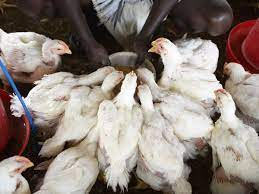Staff Reporter
The prices of chicken have declined in the city amid suspected outbreak of the virus on Sunday.
The prices were skyrocketing but the fear of the virus has compelled the poultry owners to decrease the prices. The per kilogram chicken meat is now being sold at Rs350 instead of Rs480.
Despite the massive decrease in the prices, the masses are not taking interest in buying chicken meat amid virus fears.
Last week, it emerged that a respiratory disease similar to the coronavirus is rapidly spreading among chicken across the country.
As per details, a disease called ‘infectious coryza has spread in poultry farms across Pakistan and a number of poultry farms in Karachi have been closed after the disease.
Chairman Consumer Association Pakistan Kokab Iqbal talking to the media had said the disease is similar to coronavirus disease in which chicken have common cold and respiratory problems.
Infectious coryza is an acute respiratory disease of chicken characterized by decreased activity, nasal discharge, sneezing, and facial swelling that occurs worldwide.
The disease apparently affects only chicken; reports in quail and pheasants likely describe a similar disease caused by a different bacterium.
In countries such as the US, the disease is seen primarily in pullets and laying hens and occasionally in broilers. In lower- and middle-income countries, the disease often is seen in very young chicks (eg, 3 weeks old).
Inadequate biosecurity practices and environmental factors may contribute. Infectious coryza is not a zoonotic disease (transferable to humans) and thus lacks public health importance.










